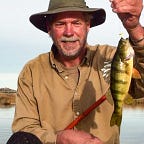Take Action in 2021 to Meet Historical Challenges, Build Sustainable Systems, and Address Issues of Environmental Justice
How will you move from thought to action in 2021?
Thinking about natural systems on a planetary basis is not casual thinking. It departs from the norm — you know, “What are we planning to have for lunch today?” as compared to, “How do we protect birds from wind farms?”
Thinking about human lives on a systemic basis isn’t casual thinking either. “How do we tear down dangerous white supremacist infrastructure?”
Thinking about social and ecological challenges can be really difficult and is important. The good news is that people are thinking! Maybe it’s an ancillary benefit of COVID-19, but introspection seems to be more prevalent. It’s happening, and it’s hopeful.
For example, I attended a “Black Lives Matter” demonstration in Billings, Montana, on a weekend back in June 2020. Montana is a red state, at least on a national, presidential basis, so such a demonstration is against the grain. But the volume of people, and the volume of their voices, was incredible. People are thinking! Even conservative whites, folks who otherwise have little to no connection with black people, are awakening to the social disparities that keep some people in disadvantaged positions and result in atrocious events like the killing of George Floyd (and so many others).
We are beginning to think. This is hopeful. This is human evolution. This is a signal that we may actually design our way through this historical moment and survive towards new challenges.
Surviving and thriving by moving thought into action
Please excuse my focus on water and the non-urban environment. It may very well seem that I’m out of touch with social developments, with anything other than water, and its health. In fact, I care, and it inspires my forward motion. I cried while standing in the #BLM crowd. I was deeply moved by the energy, the sense of community, the zeitgeist that powered its way through and into my spirit at the demonstration. Since then, I’ve accosted a friend. An apathetic friend. I’ve told him, a consistent churchgoer, that the opposite of love is apathy.
Not sure if he heard me. Not sure it matters. But know that I will continue to nudge him, and many others, towards love. In the meantime, I am searching for the links between urban and rural, between liberal and conservative, between action and apathy. In those links is where the thoughts turn into action.
Pollution, poverty, and prejudice are connected
Let’s think about the connection between pollution and poverty, resource disparity, and what it means for some children to lack opportunities for experiences in nature. As a child I experienced two memorable life changing events connected with water. One was incredibly impactful: I watched a young Black child, about my age, catch a goldfish from a park pond in downtown Milwaukee, Wisconsin. The fish was small, maybe three or four inches, but this individual scaled and filleted it, and ate the fillets right there, raw, on the spot.
Contrast that with this: My uncle was an executive with a company based in Milwaukee. The company owned a lodge in northern Wisconsin, a corporate retreat. When I was ten or eleven, I was invited to vacation there with my uncle and family. We explored, boated, fished extensively, and had a wealth of incredible impressions associated with wild and pristine water. This included catching hundreds of large yellow perch and walleye, and having a close encounter with a Musky that instilled “awe” in me, and which I’ve relived perhaps a thousand times!
I fully expect that if the Black child I’d watched eat the goldfish had the same opportunity, it would have changed his life.
Today here at Shepherd, we introduce kids to fish. At one point, ten kids with learning disabilities, about half of which had never fished before, were part of a fundraising event. They’d solicited friends and family as sponsors. Some of the kids had more than a dozen sponsors, all of whom had committed to paying a dollar per fish that their kid caught.
Environmental justice has many nuances. One of them is that natural experience has no peer.
The event was held on a mid-September Saturday morning. Over the space of four hours, the kids caught 634 fish. They raised nearly $10,000. And some of them have gone on to become environmental champions. At least, I believe and hope that is true.
We’ve had wonderful energy from the native American community too, here at Shepherd. Fish was not a major component of diet for the plains Indian, as far as I can tell. But, now, I have seen kids from this community catch on, and buy into, water stewardship. I’ve watched their eyes go wide as they hoist fish after fish from Fish Fry Lake. I’ve watched them marvel at the water clarity, where at times you can see the bottom, nineteen feet below.
I’m not sure I’ve realized it until now, but yes, I am committed to sharing Fish Fry Lake, and what it means, with the next generation of kids. I’m beginning to see why. Environmental justice has many nuances. One of them is that natural experience has no peer. I have a degree in education. And I have Fish Fry Lake. This is an incredible opportunity. I will not squander it.
